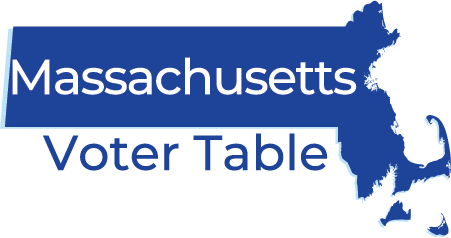When Michelle Wu became the first woman and first person of color elected mayor of Boston last November, she was one of a number of politicians from marginalized backgrounds becoming “firsts’”within Massachusetts. 2021 also saw the election of Thu Nguyen, the first nonbinary city council member in Massachusetts, and Joshua Garcia, the first Latino mayor of Holyoke. Efforts by grassroots redistricting groups succeeded in doubling the number of majority-minority State Senate districts from three to six out of 40.
Beth Huang, the executive director of Massachusetts Voter Table, says these changes are both necessary and overdue.
Massachusetts Voter Table is a coalition of organizations focused on civic engagement and voter participation among working- class voters and people of color. In the past decade it has been involved in many efforts to achieve these ends: Before last year’s redistricting push, for instance, a 2014 initiative gave employees of large employers up to five days of paid sick time per year. In 2018, Massachusetts established a $15 hourly minimum wage.
But for Boston, a city with a deep history of both immigration and racist policies such as redlining, these advancements in labor have come in tandem with other, harmful trends. Foremost among them is a surge in gentrification and the resulting displacement of poorer communities, many of them Black, Latino, or Asian, from Boston to “gateway cities” outside it. In fact, Boston was the fourth most intensely gentrified city in the U.S. from 2013 to 2017, according to a 2020 report by the National Community Reinvestment Coalition.
“First the people move, then the services move,” Huang says. “But political power is often the last thing to move with them.” People who are forced out of areas where they have built community and connections may find it difficult to lay down roots in a new location, where they may not know their city councilors or state representatives or school board members, she warns
“Racial capitalism, right?” she says. “The main thing is that there’s this cycle of, ‘My elected officials don’t respond to my community and don’t respond to my needs.’” This disillusionment decreases voter participation, she says, which in turn causes elected officials to view the community in question as unimportant to their role.
Much of the ground-level work undertaken by Massachusetts Voter Table and like-minded organizations entails talking to these voters. They also work with community groups like True Alliance Center, a Mattapan nonprofit which focuses on outreach to Haitian Creole speakers,and they offer training to local leaders. According to a report on Massachusetts Voter Table’s website, voters who the organizations’ leaders spoke to in 2021 were six percent more likely to vote than a control group. That number reflects an increase of about 30,000 people.
The drive to increase political power in minority communities is inexorably linked to efforts to bolster workers’ rights. “Essential workers” nationwide are more likely to be people of color, a disparity that has been highlighted by the Covid-19 pandemic. They are more likely to work unprotected and underpaid gig economy jobs such as driving for Uber or DoorDash.
This drive has not come without pushback, too, and greater visibility for people of color has thrown into stark relief the casual racism entrenched in the area. For instance, Mayor Wu has been subject to xenophobic attacks by protestors who opposed Boston’s January vaccine mandate. At a press conference on February 14, Huang was harassed for several minutes by a protester who mistook her for Wu; Huang later tweeted, “If only being a 5'4" Asian woman imbued in me the powers of being mayor of Boston.”
Convincing potential voters means being able to point to specific issues that will impact those who might otherwise feel powerless, Huang says. With this goal in mind, organizations are focusing their efforts on two measures expected to be on the ballot in November. There is a constitutional amendment, which organizations with beliefs similar to Huang’s support, that would create an additional income tax for income over $1 million to fund education and transportation. And there is an initiative, which they oppose, to classify rideshare and delivery app drivers as “independent contractors” rather than employees and ensure the companies they work for do not have to provide many traditional benefits. The proposal takes cues from California’s landmark Proposition 22, which Uber, Lyft, DoorDash, Instacart and Postmates spent a record $200 million in order to pass in 2020; since then, California gig workers have lost pay and autonomy even as prices for consumers have shot up.
In Massachusetts, Huang says, “while the floor might not be falling out, we certainly are really far away from the ceiling of political potential.”
